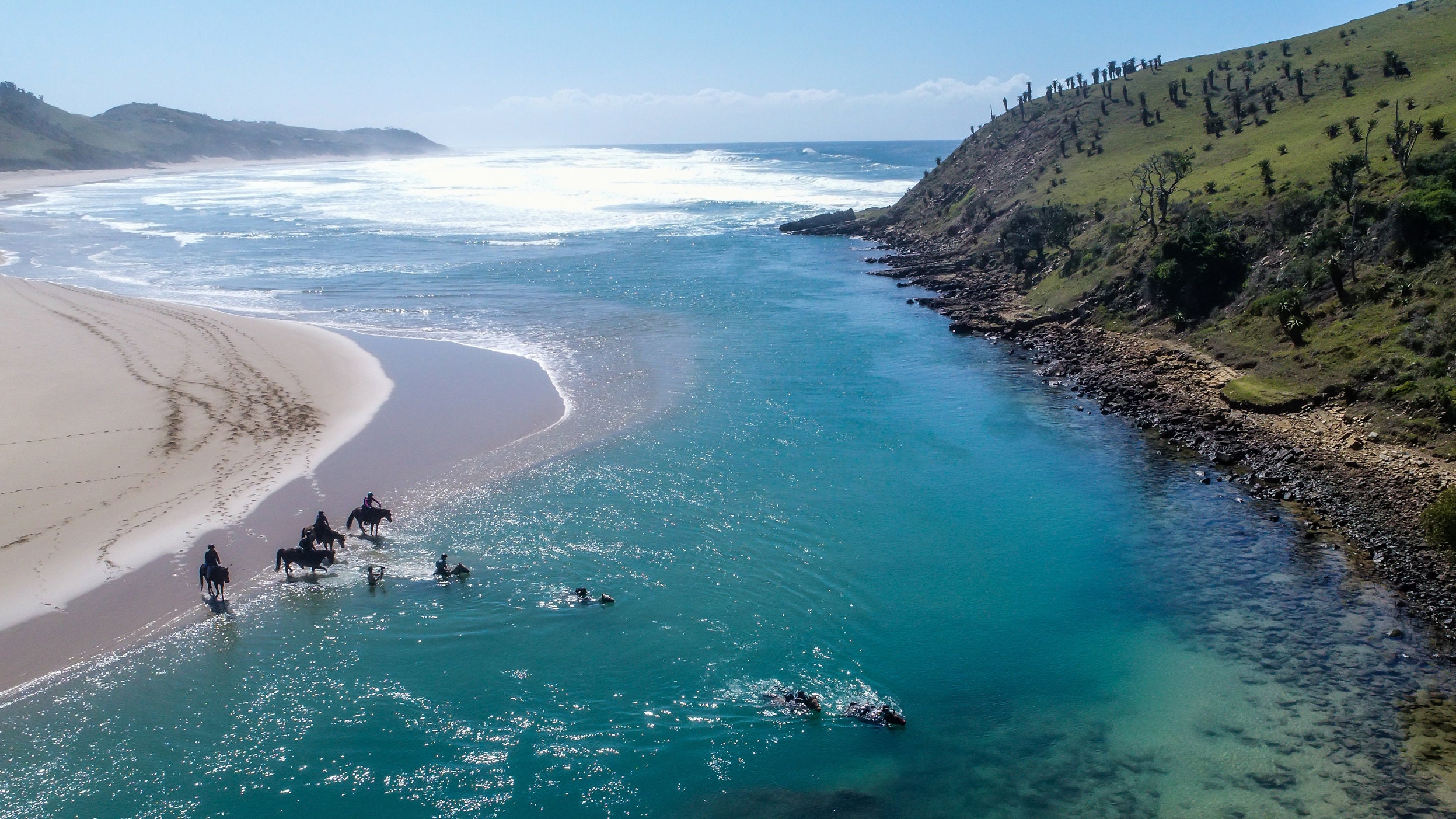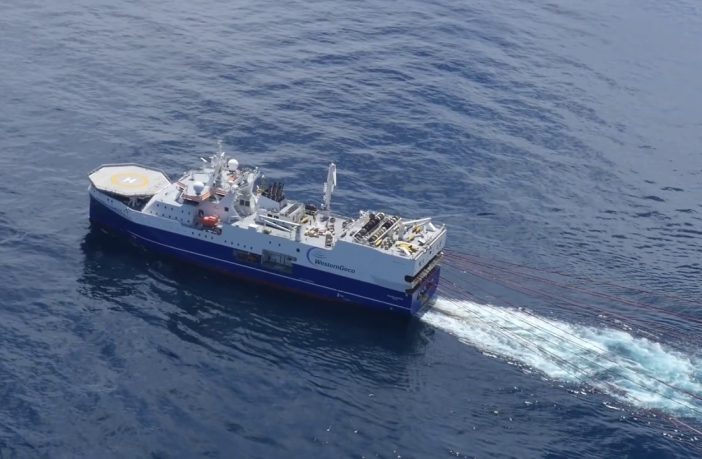- Yesterday, the four environmental and human rights organisations who filed a first urgent interim-interim interdict against Shell to prevent the fossil fuel company from commencing seismic blasting along South Africa’s Wild Coast filed an application for leave to appeal the judgement made against them on 3 December 2021.
- The applicants seek to appeal the judgement, which found that there was no reasonable apprehension that Shell’s seismic blasting would cause irreparable harm
- The world’s largest seismic ship operated by Shell Exploration and Production SA’s partner, Shearwater GeoServices, the Seismic Warrior, is set to drag up to 48 air guns methodically through 6 011km² of ocean surface from Morgan Bay to Port St Johns over a five month period.
- The air guns fire extremely loud shock wave emissions that penetrate through 3km of water and 40km into the Earth’s crust below the seabed.
- Environmentalist groups are up in arms because of the negative impact the methodology of blasting waves of sound of up to 220 decibels may have on the marine environment.
- More than 300000 people have already signed an online petition started by Oceans Not Oil Coalition calling on South Africa’s environment minister, Barbara Creecy, Shell and Operation Phakisa to stop the survey.
On 3 December 2021, Acting Judge Govindjee dismissed the application by the Border Deep Sea Angling Association, the Kei Mouth Ski Boat Club, Natural Justice and Greenpeace Africa, for an urgent interim interdict to prevent Shell commencing the seismic blasting off the Wild Coast. The applicants had applied to the Eastern Cape High Court to stop the blasting until they could return to court with more expert evidence of the harm that would be caused, and to argue that Shell did not have the necessary environmental authorisation under the National Environmental Management Act (NEMA). The court denied the application and ordered the applicants to pay the legal costs of Shell and the Minister of Minerals and Energy. Read more
The applicants are appealing because this is an issue of substantial public importance and they believe that there are reasonable prospects of an appeal court finding: that Shell did not undertake the consultations which its own environmental management programme (EMPr) obliged it to take, that the risks of harm to marine life are real and not speculative, and that there was a reasonable apprehension that the blasting would do irreparable harm if the interim interdict was not granted. They argue that the court should have issued a rule nisi directing the parties to return to court for a more in-depth hearing, should have granted an interim interim interdict to stop Shell starting the seismic survey before that hearing, and should not have made a punitive costs order when they were acting in the public interest.

South Africa’s Wild Coast is South Africa’s is home to an incredible diversity of marine life, including many threatened fishes. It is also home to a high percentage of endemic species found nowhere else in the world. The offshore reefs are also known to be important spawning grounds for migratory fish species such as geelbek and seventy-four, which have been heavily depleted by intensive fishing effort. Research in the MPA has shown that many important linefish species are more abundant and larger in the no-take zones than in the controlled fishing areas. The research has also proved the benefits of the MPA to nearby fisheries. Large numbers of marine mammals such as dolphins and whales are found in this area, especially during the annual winter sardine run. Juvenile hammerhead sharks also aggregate in this area. Image credit: Danielle Zondagh
Shell has indicated that it will oppose the application for leave to appeal. The application will be made to Judge Govindjee who will have to decide if the applicants are given leave to appeal. If the judge grants the applicants leave to appeal, it will most likely be to a “full bench” of the Eastern Cape High Court. The date for the initial appeal application hearing has not yet been set but is likely to be in early 2022.
The harm that Shell’s seismic survey is likely to cause to marine life and coastal communities was also central to the hearing on Friday 17 December 2021 before Justice Bloem of the Eastern Cape High Court. Various coastal communities along the Wild Coast and supporting NGOs, had also applied for an urgent interdict to prevent Shell continuing with the seismic blasting which it started on 8 December. Tembeka Ngcukaitobi SC told the court that the communities were not consulted at all during the preparation and approval of the EMPr and presented substantial expert evidence of the harm that seismic blasting causes. Shell’s lawyers argued for a second time that there is no evidence that there will be irreparable harm if the interdict is not granted. They maintained that although Shell’s EMPr was approved under the Mineral and Petroleum Resources Development Act, it must be regarded as an environmental authorisation under NEMA. The applicants disagree, and argue that exploring for oil and gas without a NEMA authorisation is illegal and have provided substantial expert evidence. Justice Bloem has reserved judgment until further notice.
Author: Bryan Groenendaal















